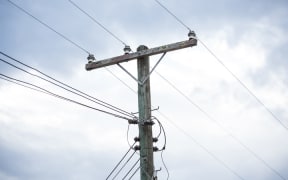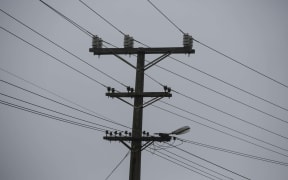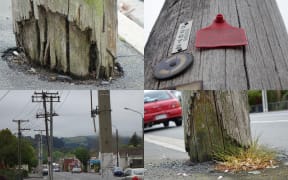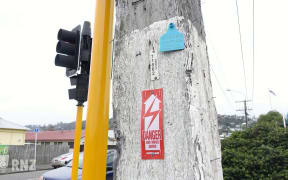An independent review of Aurora Energy's electricity network has found to pose a low risk to the public, despite some flaws being found.
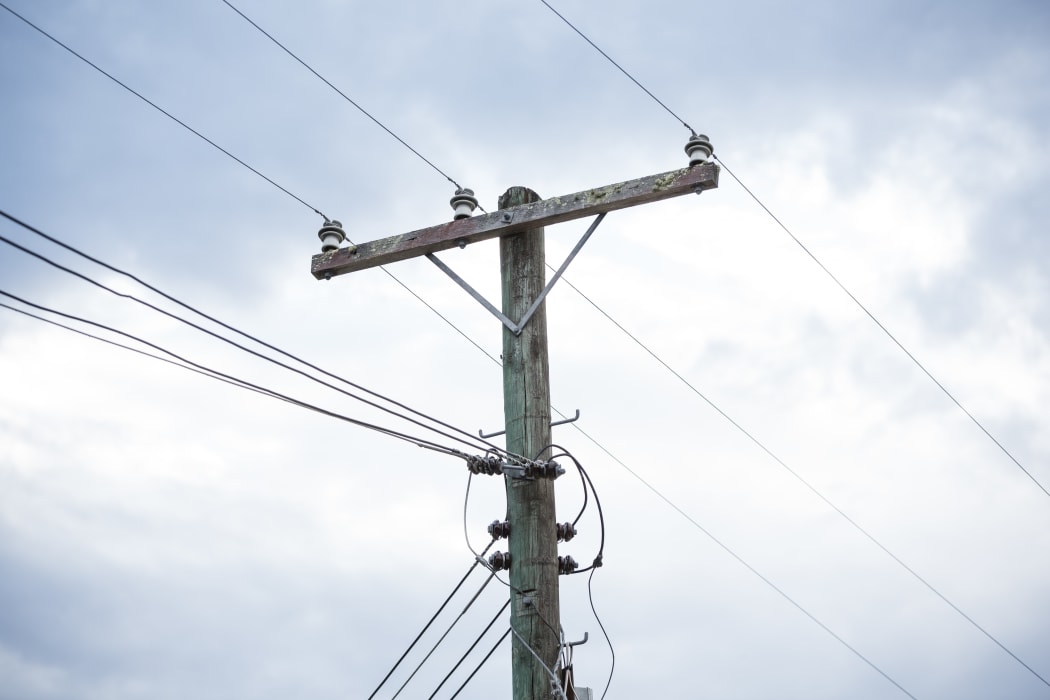
Photo: RNZ / Cole Eastham-Farrelly
The Dunedin City Council-owned lines company has been undergoing an engineering review in conjunction with the Commerce Commission.
The reviewer, WSP, was charged with assessing the public safety, reliability, resilience, environmental risk and post-fault restoration times of the networks owned and operated by Aurora.
The company's network services about 90,000 customers across Dunedin, Central Otago and Queenstown Lakes.
WSP project director Michael Van Doornik, who is also the lead report author, said most of the company's assets presented a low risk to public safety, reliability and the environment.
"Aurora is now managing assets in their end of life phase," Mr Van Doornik said.
The report found 58 percent of unplanned outages from deteriorated assets were from lines, poles and cross arms.
RNZ revealed in September that one in six poles in the network needed to be replaced within the year in March 2017 according to Aurora's own geographic information system data.
The 9504 power poles that needed replacing then dropped to 1789 by mid November - only 2250 poles had been installed during that time.
Mr Van Doornik said 1368 poles - 1264 in Dunedin or four percent of the city's poles and 104 in Central Otago and Queenstown Lakes - are in the red risk zone.
That zone assesses how likely a failure will occur with the impact it would have.
Poles appeared to be showing a slightly reducing level of failure following Aurora Energy's accelerated pole replacement programme, he said.
One of the key resilience issue Mr Van Doornik found related to the company's subtransmission cables in Central Dunedin, which are both located in the same underground trench.
That meant there could be issues if an earthquake struck, he said.
Aurora Energy chief executive Richard Fletcher said the company would immediately begin ensuring the network's ageing protection relays were tested regularly.
"The findings of the independent review support our planned investment in critical areas and has prompted us to make some refinements to condition and risk assessment and to reprioritise some of our planned work," Mr Fletcher said.
The risks and impact of natural disasters on the network would be another area explored now the finding had been released, he said.
Aurora announced it will spend about $750 million in the next 10 years to provide to reliable network for Dunedin, Central Otago and Queenstown Lakes residents earlier this month.
And the company's asset management and planning general manager Glenn Coates confirmed the report findings were unlikely to affect the price tag much.
However, Mr Coates said it could mean some projects were fast-tracked following the review.
The company was focused on delivering a safe and reliable service, which meant it would prioritise issues affecting the public, he said.
Aurora Energy will respond to the WSP independent review in December before releasing its 2019 asset management plan in late March.
'I think we're working well together'
Chief executive Richard Fletcher has responded to transparency concerns after he warned Aurora Energy staff against leaking information to the media in September.
That was after RNZ made repeated requests for interviews in the weeks after the state of the network was revealed.
Mr Fletcher likened information leaks to theft in the email.
At the time, RNZ requested an interview, which was unsuccessful.
However, after Wednesday's meeting, Mr Fletcher answered questions, saying the message was well-recieved by staff.
Leaking was inconsistent with the staff's values, which they recognised, he said.
"There's no further action from myself because at the moment I think we're working well together," Mr Fletcher said.
In response to the number of red tagged, legacy poles remaining in the network, he said all legacy poles with a current red tag would be fixed by June next year.
